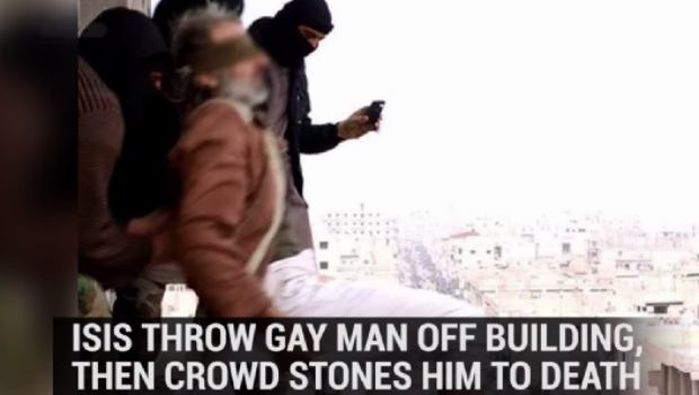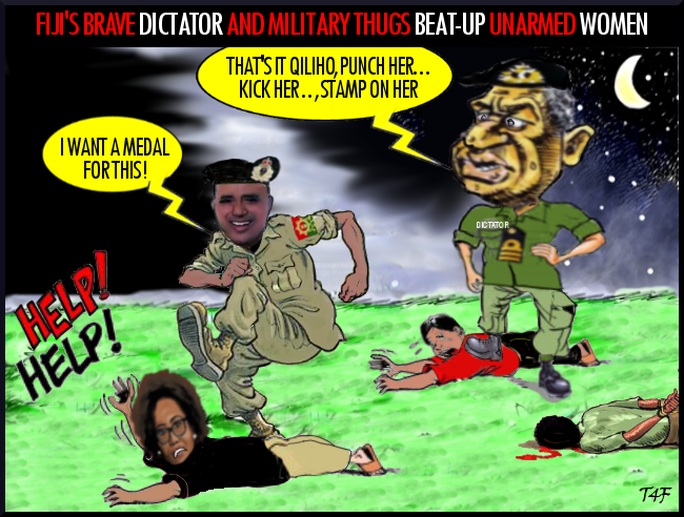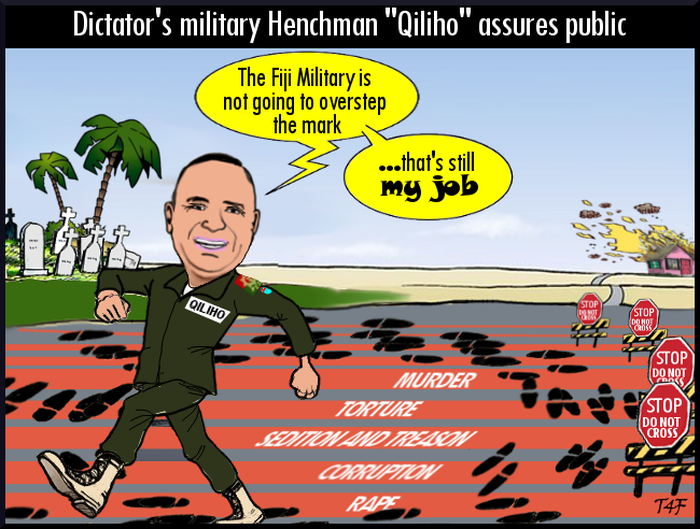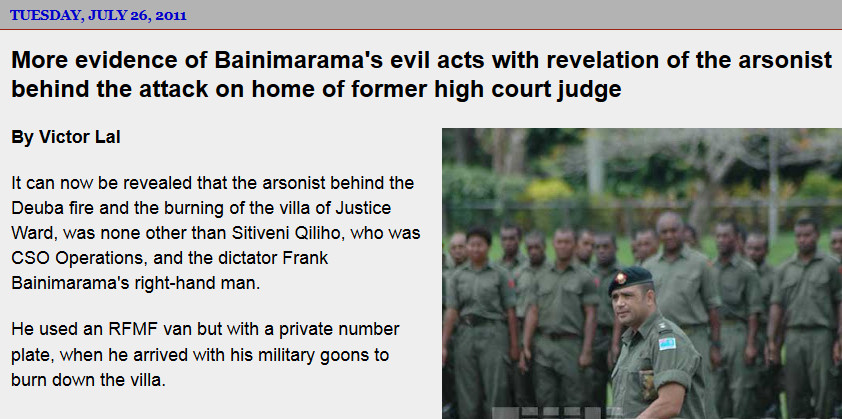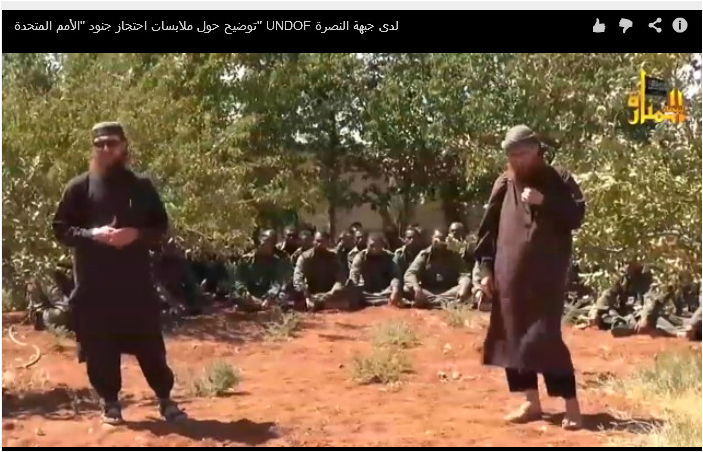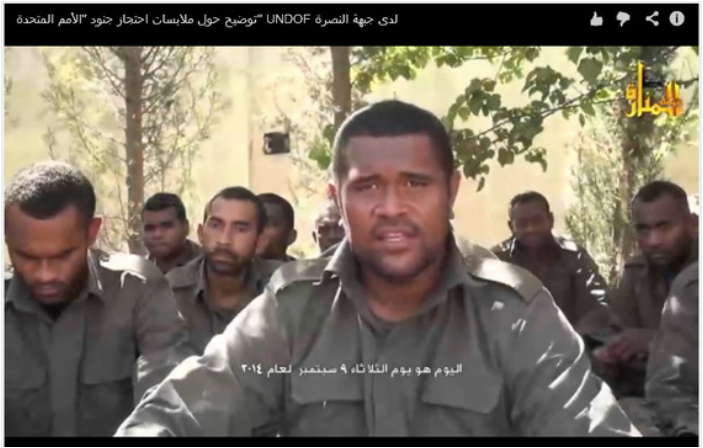Fijian troops in Sinai are safe, says Qiliho
Thursday, July 02, 2015
FIJIAN Soldiers in Sinai are safe after last night's wave of deadly attacks by Islamic State fighters in Egypt's Sinal penninsula.
This is the reassurance from Land Force Commander and spokesman Colonel Sitiveni Qiliho.
"Our troops in Sinai are safe and we want to reassure the families and loved ones that our troops are okay and safe despite the recent volatility in the area of operations," Col Qiliho said.
He said they were confident in the Multinational Force Observers and the Battalion commander Lieutenant Colonel Petero Talemaivatuwiri.
A BBC report this morning says near-simultaneous raids were launched on at least five military checkpoints and a police station in and around Sheikh Zuweid on Wednesday morning.
"Clashes were continuing in the area hours later, with militants reportedly roaming the northern town's streets.
"It is one of the largest co-ordinated assaults yet by militants in the Sinai," the report states. Source Fiji Times
Thursday, July 02, 2015
FIJIAN Soldiers in Sinai are safe after last night's wave of deadly attacks by Islamic State fighters in Egypt's Sinal penninsula.
This is the reassurance from Land Force Commander and spokesman Colonel Sitiveni Qiliho.
"Our troops in Sinai are safe and we want to reassure the families and loved ones that our troops are okay and safe despite the recent volatility in the area of operations," Col Qiliho said.
He said they were confident in the Multinational Force Observers and the Battalion commander Lieutenant Colonel Petero Talemaivatuwiri.
A BBC report this morning says near-simultaneous raids were launched on at least five military checkpoints and a police station in and around Sheikh Zuweid on Wednesday morning.
"Clashes were continuing in the area hours later, with militants reportedly roaming the northern town's streets.
"It is one of the largest co-ordinated assaults yet by militants in the Sinai," the report states. Source Fiji Times
CAIRO — Two years after President Abdel Fattah el-Sisi led a military takeover promising to restore order and security in Egypt, he faces a rising jihadist insurgency that has shaken the stability of this most populous Arab state, a key ally of the United States.
Just two days after militants assassinated Egypt’s top prosecutor on a Cairo street, the military on Wednesday called in F-16 war planes and helicopters to beat back a coordinated assault in Northern Sinai by a jihadist group affiliated with the Islamic State. Egyptian soldiers were killed, police officers were trapped in their posts, ambulances were paralyzed by booby-trapped roads and residents were warned to stay indoors by jihadists roaming on motorcycles.
The scale and complexity of the attack far exceeded any of the group’s previous strikes in Sinai, raising the possibility that it has begun to coordinate more closely with the Islamic State leadership based in Syria, experts said.
More broadly, even as Mr. Sisi has pressed a campaign to marginalize mainstream Islamists like the Muslim Brotherhood — with the authorities outlawing the group, jailing thousands, sentencing hundreds to death and using lethal force to shut down protests — he has faced growing opposition from more violent Islamists vowing retaliation for the government crackdown.
That failure to tamp down violence and restore order has undercut Mr. Sisi’s ability to prop up the second pillar he promised to restore: the economy. The vital tourism industry faces new threats from militants just as the government had begun to predict a recovery. The economy remains deeply dependent on tens of billions of dollars a year in aid from Persian Gulf monarchies.
At the same time, political life is frozen, with parliamentary elections promised two years ago yet to be scheduled. And the drumbeat of attacks by militants is fraying the public’s nerves.
“After the attacks in Tunisia, Kuwait and France, I imagined that we were far from this,” said Abdelrahman Essa, a 27-year-old engineer in Cairo. “It is a new stage of violence. I am afraid of the situation and the way events are developing.”
Just two days after militants assassinated Egypt’s top prosecutor on a Cairo street, the military on Wednesday called in F-16 war planes and helicopters to beat back a coordinated assault in Northern Sinai by a jihadist group affiliated with the Islamic State. Egyptian soldiers were killed, police officers were trapped in their posts, ambulances were paralyzed by booby-trapped roads and residents were warned to stay indoors by jihadists roaming on motorcycles.
The scale and complexity of the attack far exceeded any of the group’s previous strikes in Sinai, raising the possibility that it has begun to coordinate more closely with the Islamic State leadership based in Syria, experts said.
More broadly, even as Mr. Sisi has pressed a campaign to marginalize mainstream Islamists like the Muslim Brotherhood — with the authorities outlawing the group, jailing thousands, sentencing hundreds to death and using lethal force to shut down protests — he has faced growing opposition from more violent Islamists vowing retaliation for the government crackdown.
That failure to tamp down violence and restore order has undercut Mr. Sisi’s ability to prop up the second pillar he promised to restore: the economy. The vital tourism industry faces new threats from militants just as the government had begun to predict a recovery. The economy remains deeply dependent on tens of billions of dollars a year in aid from Persian Gulf monarchies.
At the same time, political life is frozen, with parliamentary elections promised two years ago yet to be scheduled. And the drumbeat of attacks by militants is fraying the public’s nerves.
“After the attacks in Tunisia, Kuwait and France, I imagined that we were far from this,” said Abdelrahman Essa, a 27-year-old engineer in Cairo. “It is a new stage of violence. I am afraid of the situation and the way events are developing.”
